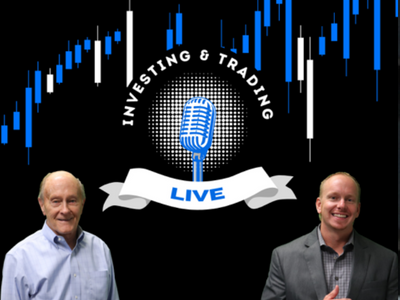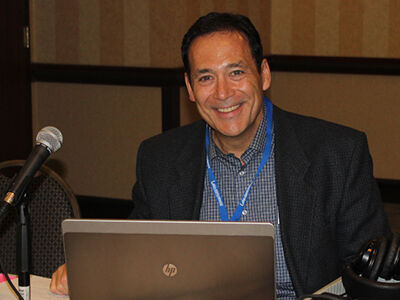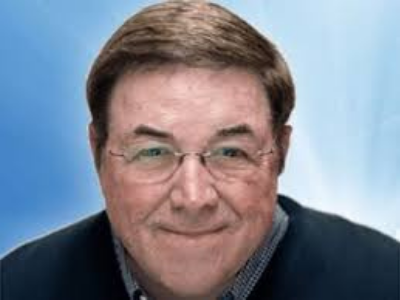A year after losing its longtime leader, Hezbollah is beginning to regroup
News > National News

Audio By Carbonatix
11:06 PM on Friday, September 26
By BASSEM MROUE and ABBY SEWELL
BEIRUT (AP) — Hezbollah suffered one blow after another during its most recent war with Israel, culminating in the killing of the militant group's longtime leader, Hassan Nasrallah, in massive Israeli airstrikes on a Beirut suburb.
The group was weakened militarily and politically. Many of its opponents declared that its days as a dominant regional and local player were over.
But one year later, many of Hezbollah’s supporters, enemies and analysts agree in their assessment: It is regrouping.
“The loss of this leader was a very painful blow to Hezbollah,” senior Hezbollah political official Mohammed Fneish told The Associated Press in the run-up to Saturday's anniversary of Nasrallah's death.
“However, Hezbollah is not a party in the usual sense that when it loses its leader, the party becomes weak,” he said. “In a relatively short period of time, it was able to fill all the positions it lost when (leaders) were martyred, and it continued the confrontation.”
An Israeli military official, speaking anonymously in line with regulations, said in a statement that Hezbollah's “influence has declined considerably” and that “the likelihood of a large-scale attack against Israel is considered low.”
But the statement added that “the organization is attempting to rebuild its capabilities; efforts are limited but expected to expand.” The military declined to comment on how much of Hezbollah's arsenal of missiles and drones Israel believes remains intact.
Despite losing most of its top leadership and key communications systems, Hezbollah continued to fight when Israeli troops invaded southern Lebanon last October.
After a U.S.-brokered ceasefire halted the fighting in late November, Israeli forces took control of more territory than they did during the war, and Israel has continued carrying out near-daily airstrikes that it says target Hezbollah militants and facilities.
Hezbollah also lost a key route for supplies from its backer, Iran, when the allied government of Bashar Assad in Syria fell in a rebel offensive in December, which Fneish acknowledged was a blow to Hezbollah’s “strategic depth.”
The Lebanese government, meanwhile, has said it will work on disarming the group by the end of this year, a key demand of the U.S. and Saudi Arabia before funding reconstruction and a decision Hezbollah has categorically rejected.
Political opponents say the group is in denial about its loss of power.
“Hezbollah’s leadership is detached from reality,” said Lebanese lawmaker Elias Hankash, a frequent critic of Hezbollah, who called on it to surrender its weapons and become solely a political party. “Hezbollah did not defend the Lebanese, nor itself, nor its weapons, nor its command.”
But U.S. envoy Tom Barrack cautioned against underestimating the group in an interview with United Arab Emirates-based IMI Media Group: “The Lebanese think Hezbollah is not rebuilding. They’re rebuilding."
The Israeli military official said, “Hezbollah is currently struggling to receive sufficient funding from Iran."
But Barrack asserted the group, which the U.S. designates a terrorist organization, is receiving as much as $60 million per month from unknown sources. That is despite measures to cut off its funding, including a ban on flights from Iran.
“Hezbollah is our enemy, Iran is our enemy. We need to cut the heads off of those snakes and chop the flow of funds,” Barrack said.
Fneish didn't address the group’s funding sources, but said its financial situation is “normal” and its institutions are functioning as before, including healthcare and social services as well as its armed wing.
Founded in 1982, months after Israel invaded Lebanon and occupied parts of it, Hezbollah morphed into one of the region's most powerful armed groups, fighting several wars with Israel and spearheading a campaign that forced it to withdraw from southern Lebanon in 2000.
The latest conflict began the day after the Oct. 7, 2023, Hamas-led attack on southern Israel that triggered the ongoing war in Gaza. Hezbollah began firing rockets into Israel from Lebanon in a “support front” for Hamas and the Palestinians.
In September 2024, Israel expanded its attacks, starting with the detonation of thousands of pagers and walkie-talkies used by Hezbollah members. Days later, it launched a major wave of airstrikes that killed Hezbollah commanders and hundreds of civilians.
The biggest blow was Nasrallah’s assassination, with the dropping of more than 80 1-ton bombs that destroyed an entire block under which Nasrallah and some of his top officials were meeting with an Iranian general.
Days later, Nasrallah's successor, Hashem Safieddine, was killed in airstrikes. The group later named Nasrallah’s deputy, Naim Kassem, as the new leader, but the wide perception is that Kassem lacks Nasrallah’s charisma.
“Nasrallah’s assassination was an emotional shock that is destabilizing, but their identity finds continuity through the martyrdom culture,” said Bashir Saade, a lecturer of politics and religion at the University of Stirling in Scotland who has written a book about the group.
Fneish said the group does not have an identity crisis.
“Sayyed Hassan Nasrallah was the representation of this identity; he was not himself the identity,” he said.
Hezbollah, particularly its military wing, largely went underground after Nasrallah's death. Officials in the group said Hezbollah has been working to close the intelligence gaps that led Israel to successfully target its military and political officials. Hezbollah members now rely less on technology, an official with the group said on condition of anonymity because he was speaking about internal affairs.
The Hezbollah official said Israel used technology and spies to gather information and plan attacks.
Months before Nasrallah’s assassination, the group detained a Lebanese man who had been suspiciously wandering around the area where Nasrallah was later killed. The man confessed to gathering information for Israel and is still detained by Hezbollah, he said.
The biggest breach, the official said, was Israel’s infiltration of the group’s internal cable communications network.
Growing pressure within Lebanon for Hezbollah to give up its weapons and delays in reconstruction of war-battered areas have left many in its largely Shiite base feeling that there are attempts to marginalize them.
Lebanese political writer Sultan Suleiman said that feeling contributed to the base rallying and an overwhelming victory by Hezbollah and its allies in this year’s municipal elections in its traditional political strongholds.
Some who originally favored disarmament have reassessed.
“There’s a portion of this community that was psychologically worn down after this war, and started saying, fine, let's give up the weapons and we’ll be able to relax,” Lebanese journalist Jad Hamouch said. “But after they saw how Israel is behaving in the region, now they’re saying, no, we want to keep the weapons.”
Amira Jaafar, who lived in the border village of Kfar Kila before it was largely destroyed during the war, lost her son in the conflict. She said despite all of Hezbollah's losses, including the death of its “great leader” Nasrallah, “we are still strong and there are many, many young men" still "ready to fight until their last breath."
A Western diplomat, who spoke on condition of anonymity in order to speak freely, said the Lebanese state is caught in a catch-22 regarding its decision to disarm the group.
The cash-strapped and understaffed Lebanese army, where many soldiers work second jobs to make ends meet, is ill-equipped to face a force of battle-hardened and better-paid fighters who also, in some cases, come from their own communities, he said.
“I don’t see any coming back on this (decision), but I don’t see how it will go forward either,” he said.
___
Associated Press writer Sam Mednick in Tel Aviv, Israel, contributed to this report.












